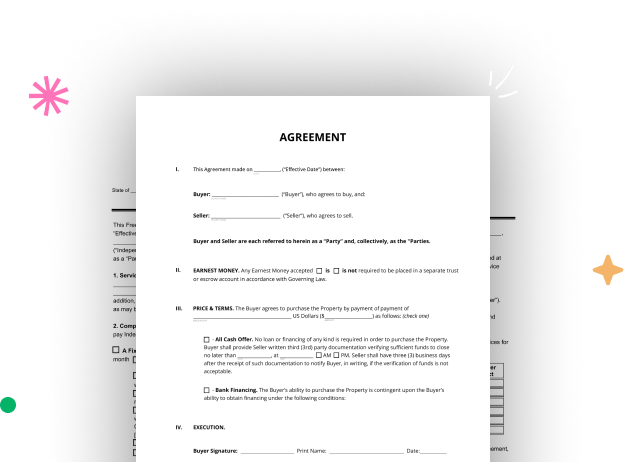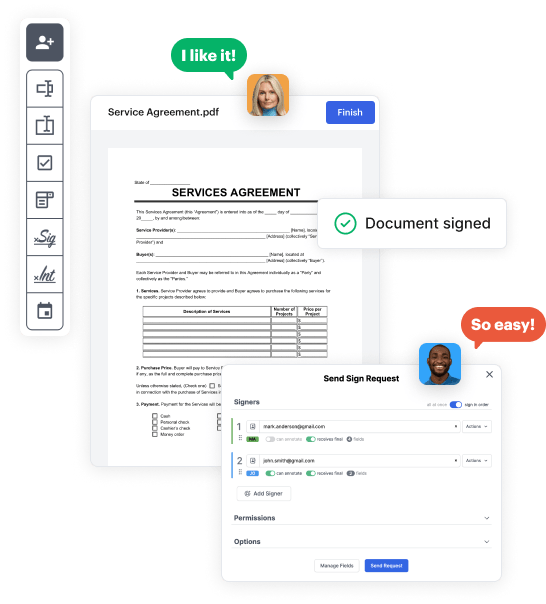

First, sign in to your DocHub account. If you don't have one, you can simply register for free.
Once signed in, navigate to your dashboard. This is your primary hub for all document-centric operations.
In your dashboard, select New Document in the upper left corner. Opt for Create Blank Document to craft the US Discovery Legal Form from the ground up.
Add different fields like text boxes, photos, signature fields, and other fields to your form and assign these fields to certain users as needed.
Refine your document by including instructions or any other vital information using the text tool.
Carefully review your created US Discovery Legal Form for any discrepancies or necessary adjustments. Leverage DocHub's editing tools to enhance your form.
After finalizing, save your copy. You can opt to save it within DocHub, export it to various storage solutions, or send it via a link or email.